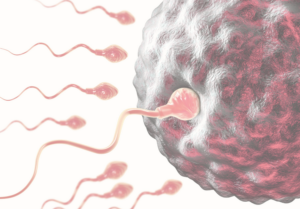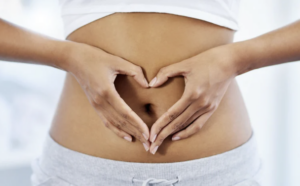Thrush. Most women have experienced at some point what they believe to be thrush — with 3 out of 4 women experiencing thrush in their lifetimes. But does this mean we actually have thrush every time we may diagnose ourselves with such? Could this be an indication of other issues with your vaginal health?
ScreenMe is on a mission to educate women about their own vaginas, helping them to no longer put up with uncomfortable vaginal issues and symptoms.
What exactly is thrush?
Thrush is a common yeast infection that can affect both men and women. This is an overgrowth of yeast, and can grow in many parts of your body including; genitals, mouth, throat, and armpits.
This is most often harmless, however can have uncomfortable symptoms and many suffer with consistently getting it.
Is thrush sexually transmitted?
Do not worry — there is no current evidence to suggest thrush is sexually transmitted!
What does thrush look or feel like?
According to the NHS:
Thrush is typically characterised by
Symptoms in women:
- Vaginal itchiness
- Vaginal irritation
- Vaginal discharge that is a similar consistency to cottage cheese
- Pain during sex or while peeing
Symptoms in men:
- Discharge that is a similar consistency to cottage cheese
- Unpleasant smell
- Irritation & burning sensation usually around the head of the penis
- Difficulty in pulling back foreskin
Re-occurring symptoms
However — sometimes your symptoms don’t go away even after taking treatment or they keep coming back. This can really impact your quality of life and cause a lot of stress and pain.
There are 2 main reasons why this may be happening:
- The treatment used is not tailored to the species of yeast that is causing your infection. There are many species of yeast that can cause thrush and often women are not screened for all species and therefore not treated for the right species. This is why ScreenMe’s yeast test screens 100% of yeast species, while our Advanced Vaginal Health Test screens 100% of yeast & bacteria present.
- It is not a yeast infection that is causing your symptoms (see below)
…Then what else could it be?
- Vaginal Imbalance
- These symptoms could be a sign of a vaginal microbiome imbalance — that is, where you have insufficient levels of good bacteria in your vagina, leaving you more susceptible to yeast infections, UTIs, STDs, cervical cancer, miscarriage, and more.
- If you suspect a vaginal imbalance or have reoccurring symptoms, we recommend that you try our Vaginal Health testing kit. This screens 100% of bacteria and yeast in your vagina, allowing us to construct a specific plan catered to your exact situation and needs. Each test comes with a free consultation, so our experts can discuss your individual results, guide you through product recommendations, as well as support you with next steps.
- Irritants
- Your vagina is sensitive, and anything that disrupts its natural pH is likely to result in itchiness and irritation. You should check the ingredients of all products you use near your genitals including:
- Creams
- Feminine sprays
- Toilet paper
- Pads & liners
- Detergents
- Body washes
- Lubricants
- The general rule is that anything containing fragrances, dyes, alcohols, or parabens should be avoided!
- Menopause
- A reduction in oestrogen during menopause often results in the tissues of the vagina and surrounding vulva to lose some of their elasticity, become thinner and drier.
- There are certain creams and treatments you can use to manage this symptom.
- If you want to know more about how your hormones and body are changing through menopause, then check out our Menopause Packages.
- STDs
- There are a few STDs that also cause vaginal itchiness. These include:
- Gonorrhoea
- Chlamydia
- Pubic lice
- If you have had unprotected sex recently, or never got an STI check then we recommend you take one. These are available through your local sexual health clinic, and can often be delivered to your home free of charge, in discreet packaging.
- Vulvar Cancers
- Although this is rare, vaginal itching can be a sign of vulvar cancers. Other accompanying symptoms include, discolouration and thickening of the skin, lumps, unknown bleeding. If you are experiencing some of these symptoms, we highly advise speaking to a doctor.
- This is why we recommend getting a gynaecological examination and vaginal test once a year to raise chances of early detection.
Those particularly at risk of thrush
Individuals most at risk are typically:
- Pregnant
- With a vaginal microbiome imbalance
- Diabetic
- On anti-biotics
- On birth control pills
Thrush treatment
Thrush is treatable and treatment can be provided by your GP or sexual health clinic. This is usually using an antifungal medicine in the form of a pessary (tablet you insert in to your vagina), or a cream. There are also methods you can employ in your day-to-day life to reduce the risk of thrush (see below).
It is important to note that often people self-diagnose themselves with thrush, due to having thrush-like symptoms. However, if this is a reoccurring issue or you think you may have a vaginal imbalance, then we recommend testing your vaginal microbiome and getting an understanding of what is at the root of the issue.
How can I stop getting thrush?
- Properly dry off after washing
- Wear cotton underwear
- Try not to sit in tight clothes (particularly gym wear) all day long, especially after working out
- Avoid fragranced creams around your genital area
- Do not use douches
- Limit the amount of sugar you intake
- Test your vagina — see if you have an unbalanced vaginal microbiome that leaves you more susceptible not just to thrush, but to UTIs, STD infections, BV, cervical cancer, and vaginal symptoms including itchiness, dryness and pain during sex.
We hope this helps you — and please contact us if you have any additional queries!
Fariba Khonsari








2 responses
This is a test comment!
This is a reply cm!